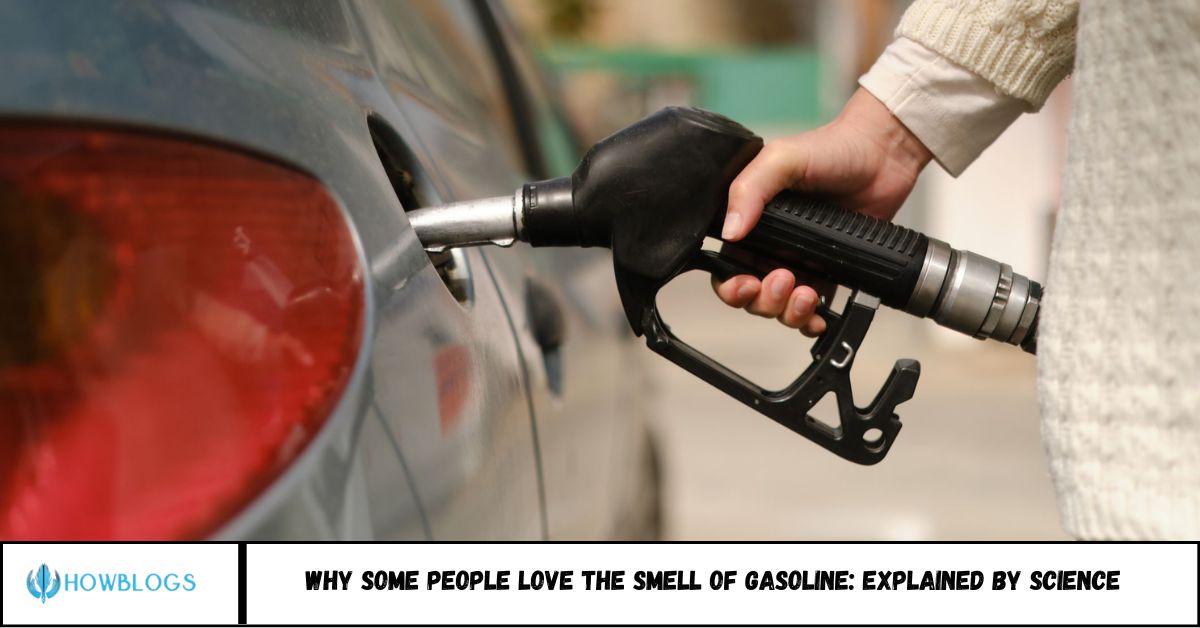Table of Contents
Why Some People Love the Smell of Gasoline — And Science Backs It Up
If you’ve ever found yourself secretly enjoying the sharp, sweet scent of gasoline at the pump, you’re not alone — and there’s no need to feel guilty. The distinct odor of gasoline, a complex chemical blend primarily made up of benzene, hydrocarbons, and other volatile organic compounds (VOCs), has a surprisingly strong appeal for many people. As strange as it may seem, neuroscience and chemistry offer valid explanations for why that pungent aroma triggers pleasure in the brain.
Whether it’s a fleeting whiff from a gas station nozzle or the nostalgic association tied to mechanics and road trips, the allure of gasoline’s scent taps into our olfactory system in unique ways. And while some individuals find the smell intensely unpleasant, those who enjoy it tend to really love it. So what’s
The smell of gasoline is oddly pleasant to some people—but why? This article explores the psychological and chemical factors that explain this strange attraction. Learn how benzene, olfactory response, and nostalgia may all play a role. Understand the science, safety, and what it reveals about our brains.
Why Do Some People Like the Smell of Gasoline?
“Why does gasoline smell so good?” It’s a common question—and one that science is beginning to explain.
Some people feel an instant sense of comfort or pleasure when catching a whiff of gasoline, despite knowing it’s a toxic substance. From gas stations to lawn mowers, the scent can feel nostalgic or even addictive. But what’s actually going on in your brain and body when this happens?
Let’s explore the science of scent, the chemicals behind gasoline’s aroma, and the psychology that fuels our fascination.
What’s in Gasoline That Makes It Smell?
The distinct smell of gasoline is primarily due to a chemical called benzene, a sweet-smelling, volatile hydrocarbon.
Benzene is:
- Naturally found in crude oil.
- Added to gasoline to improve fuel efficiency.
- Known for its aromatic, almost pleasant odor—even though it’s toxic in high doses.
Because of its volatility, benzene evaporates easily, releasing a powerful scent that interacts quickly with the human olfactory system.
The Brain’s Reaction to Benzene and Other Aromatics
When you smell gasoline, benzene and other hydrocarbons stimulate your olfactory nerves, sending signals to the brain’s limbic system—the area responsible for emotion and memory.
This connection can trigger:
- Dopamine release, giving a mild sense of euphoria.
- Emotional recall, especially if the scent is tied to positive memories.
- Relaxation, similar to what happens with other aromatic substances.
Similar Scents with Positive Responses
Gasoline isn’t the only scent people find strangely pleasing. Others include:
- Freshly cut grass
- Nail polish remover (acetone)
- Permanent markers
- Paint thinner
All of these have volatile organic compounds (VOCs) that interact similarly with our olfactory receptors.
Nostalgia and Childhood Associations
Scent is the strongest sense linked to memory. For many people, the smell of gasoline is associated with:
- Family road trips
- Working in the garage with a parent
- Mowing the lawn on summer mornings
These positive emotional connections can trick the brain into interpreting a harmful chemical smell as comforting or enjoyable.
Is It Dangerous to Like the Smell of Gasoline?
Liking the smell isn’t dangerous in itself—but repeated or intentional inhalation is.
Health risks of prolonged exposure to gasoline fumes:
- Headaches and dizziness
- Respiratory problems
- Nervous system damage
- Increased cancer risk due to benzene
Casual exposure—like catching a whiff while fueling your car—is generally not harmful. However, deliberate sniffing or prolonged inhalation should be avoided.
Key Takeaways
- Gasoline’s scent is primarily from benzene, a sweet-smelling but toxic hydrocarbon.
- The brain’s emotional and memory centers can associate the smell with comfort or nostalgia.
- Mild exposure is harmless, but chronic inhalation can be dangerous.
- Other scents like markers or fresh-cut grass evoke similar responses due to shared chemical properties.
FAQs
1. Is it normal to like the smell of gasoline?
Yes, it’s surprisingly common due to how our brains process scent and memory.
2. Why does gasoline smell sweet to some people?
Because of benzene, a compound with a naturally sweet odor that interacts with pleasure receptors.
3. Is it dangerous to sniff gasoline on purpose?
Yes. Inhaling gasoline intentionally can be harmful or even life-threatening over time.
4. Can the smell of gasoline cause a high?
Yes, it may trigger mild euphoria due to dopamine release—but this is not safe or recommended.
5. Why do some people hate the smell of gasoline?
Sensitivity varies. Some people may associate the smell with headaches, illness, or danger.
6. Is benzene found in other products?
Yes, benzene is also found in cigarette smoke, some glues, paints, and detergents.
Conclusion
The smell of gasoline is a powerful combination of chemistry, memory, and psychology. While the aroma may trigger pleasant feelings or nostalgic memories, it’s important to recognize the potential health risks of prolonged exposure.
Understanding why you like certain smells can give you insight into your brain’s emotional pathways—and help you enjoy them safely.

